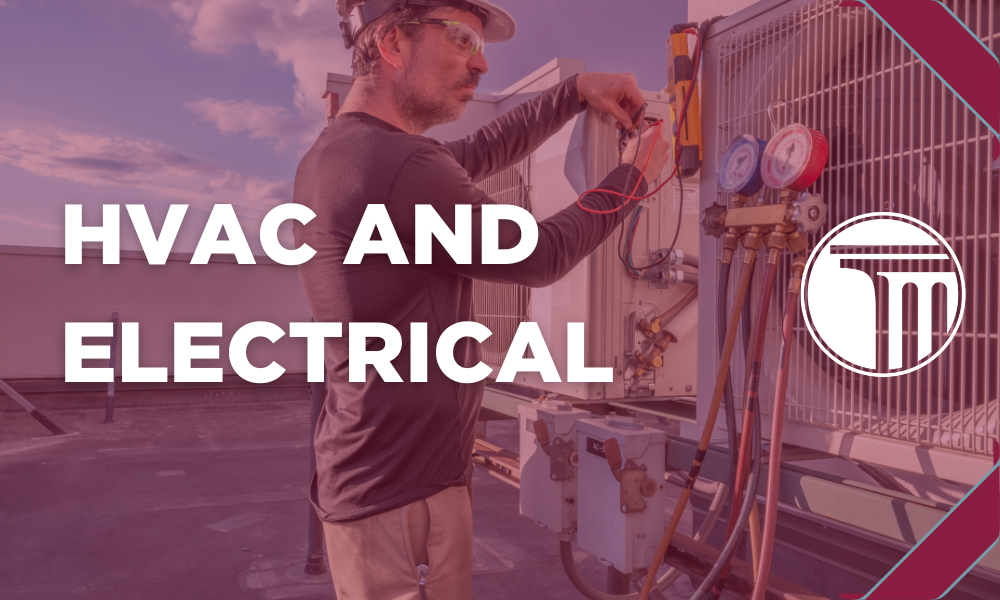Air, Heating, & Refrigeration and Electrical Courses
Stepping into the trades? Mitchell’s courses in heating, ventilation & air conditioning, and refrigeration (HVAC-R) and electrical programs are two occupational industries that will never be short of need.
Classes listed below are intended for those individuals who wish to join short-term training options while exploring this career path prior to enrolling in a various certificate, diploma, or A.A.S. degree program; as well as those individuals working in the field as technicians and helpers who need additional skills for career (and pay) advancement.
Class Information
Spring, Fall, Summer notes what time frame this course is generally offered. This is subject to change so check the listing of available courses for the most up-to-date comprehensive listing.
- Programmable Logic Controllers (PLCs) (Fall)
- HVAC-R Electricity (Fall)
- HVAC-R: Cooling (A/C) Systems / Comfort Cooling (Spring)
- HVAC-R: Heating Technology (Fall)
- HVAC: Refrigerant Certification Exam Preparation (Fall)
- HVAC: Refrigeration Systems / Introduction to Refrigeration (Fall)
One of the most sought-after skills in our local industry. This course provides a detailed study of PLC applications, with a focus on the design of industrial controls using the PLC. It also provides instructions on basic electronic theory and applications. Emphasis is placed on the basic function and operation of semiconductors and integrated circuits. Topics include PLC components, memory organization, math instructions, documentation, input/output devices, and applying PLCs in industrial control systems. Upon completion, students should be able to select and program a PLC system to perform a wide variety of industrial control functions. (no course prerequisites)
This course introduces electricity as it applies to HVACR equipment. Emphasis is placed on power sources, interaction of electrical components, wiring of simple circuits, and the use of electrical test equipment. Upon completion, students should be able to demonstrate good wiring practices and the ability to read simple wiring diagrams. This course is delivered as much as 50% online; Microsoft Teams meetings are required. This course will meet on the days and times listed at the location given with additional instruction delivered through Mitchell’s Learning Management System asynchronously (accessible at different times than the instructor). Students must have computer and internet access. Students must log-in to the course on the first day of class and complete the Mandatory Enrollment Activity (MCEA) by the census date of the class.
This course covers the installation procedures, system operations, and maintenance of residential and light commercial comfort cooling systems. Topics include terminology, component operation, and testing and repair of equipment used to control and produce assured comfort levels. Upon completion, students should be able to use psychometrics, manufacturer specifications, and test instruments to determine proper system operation. (no course prerequisites)
This course covers the fundamentals of heating including oil, gas, and electric heating systems. Topics include safety, tools and instrumentation, system operating characteristics, installation techniques, efficiency testing, electrical power, and control systems. Upon completion, students should be able to explain the basic oil, gas, and electrical heating systems and describe the major components of a heating system. NOTE: This course may be delivered as much as 50% online. This course will meet on the days and times listed at the location given. Students must have computer and internet access. (no course prerequisites)
This course covers the requirements for the EPA-608 refrigerant certification exams. Topics include small appliances, high pressure systems, and low-pressure systems. Upon completion, students should be able to demonstrate knowledge of refrigerants and be prepared for the EPA certification examinations. (no course prerequisites)
This course introduces the basic refrigeration process used in mechanical refrigeration and air conditioning systems. Topics include terminology, safety, and identification and function of components; refrigeration cycle; and tools and instrumentation used in mechanical refrigeration systems. Upon completion, students should be able to identify refrigeration systems and components, explain the refrigeration process, and use the tools and instrumentation of the trade. (no course prerequisites)
- Electrical: Circuit Analysis 1 (Fall)
- Electrical: Commercial Wiring (Spring)
- Electrical: Starting Your Electrical Business in NC
- Electrical: Industrial Wiring (Spring)
- Electrical Maintenance (Spring)
- Electrical: Motors and Controls (Summer)
- Electrical: NEC Calculations (Spring and Fall - Online)
- Electrical: Residential Wiring (Fall)
This course provides instruction in the application of electrical tools, materials, and test equipment associated with commercial electrical installations. Topics include the NEC; safety; electrical blueprints; planning, layout, and installation of equipment and conduits; and wiring devices such as panels and overcurrent devices. Upon completion, students should be able to properly install equipment and conduits associated with commercial electrical installations.
Course covers: the National Electrical Code (NEC); safety; equipment associated with commercial electrical installations; electrical blueprints; planning, layout; and installation of electrical distribution equipment; lighting; overcurrent protection; conductors; branch circuits; and conduits. Upon completion, students should be able to properly install conduits, wiring, and electrical distribution equipment associated with commercial electrical installations. (no course prerequisites)
Master the path to becoming a Licensed Electrician in NC and owning your own business! This comprehensive workshop covers everything you need to know, from navigating license levels and sitting for the NC electrical license exam to how to start an electrical business. Learn key steps to starting your own electrical business, including licensing, feasibility, marketing, and much more! This workshop empowers you to confidently launch your successful electrical business in the thriving NC market. This workshop is offered through the Small Business Center and there is no cost to register.
This course covers the layout, planning, and installation of wiring systems in industrial facilities. Emphasis is placed on industrial wring methods and materials and safety regulations as they relate to higher voltages faced in industrial settings. Upon completion, students should be able to install industrial systems and equipment. (no course prerequisites)
Want to work in the facilities maintenance field? This is a great class for you! Focused on commercial and industrial facility electrical equipment, this course covers: maintenance theory, predictive and preventive maintenance, electrical equipment operation and maintenance, and maintenance documentation. Upon completion, students should be able to perform maintenance on electrical equipment in industrial and commercial facilities. (no course prerequisites)
This course prepares individuals to repair and maintain electrical and mechanical systems and physical structures of commercial and industrial institutions. Emphasis is on multi-disciplined systems maintenance, troubleshooting, and problem resolution. Topics include ladder diagrams, pilot devices, contactors, motor starters, motors, and other control devices. Upon completion, students should be able to properly select, connect, and troubleshoot motors and control circuits. (no course prerequisites)
This course covers branch circuits, feeders, and service calculations. Emphasis is placed on sections in Chapter 2 of the National Electrical Code (NEC) specific to calculations. Upon completion, students should be able to use appropriate code sections to size wire, conduit, and overcurrent devices for branch circuits, feeders, and services. Electrical work experience helpful before taking this class.
This course introduces the care/usage of tools and materials used in residential electrical installations and the requirements of the National Electrical Code. Topics include NEC, electrical safety, and electrical print reading; planning, layout; and installation of electrical distribution equipment; lighting; overcurrent protection; conductors; branch circuits; and conduits. Upon completion, students should be able to properly install conduits, wiring, and electrical distribution equipment associated with residential electrical installations. (no course prerequisites)
- Submit your questions here. We are happy to help you.
- Register for a Continuing Education HVAC-R or Electrical course.
- HVAC-R information for degree and certificate programs (AHR diploma)
- Electrical information for degree and certificate programs (A.A.S., diploma, or certificate)
- Scholarship information for continuing education courses
Contact:
CE Registration
701 West Front Street; Statesville, NC 28677
704-878-3220 / 704-878-3290
ce_registration@mitchellcc.edu



